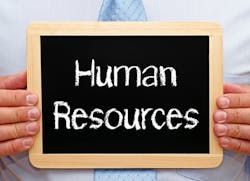Human Resources for Dental Practices: To pay or not to pay interns, FMLA updates
QUESTION: I’d like to hire an intern for the summer. Do I have to pay this person or can it be an unpaid internship?
ANSWER: According to the Fair Labor Standards Act (FLSA), the federal law that sets the rules for compensation, if all of the following criteria are met, then interns can be unpaid:
1. The training, though it may include actual operation of the employer’s facilities, is similar to training that would be given in a vocational school;
2. The training is for the benefit of the student;
3. The student does not displace regular employees, but works under close observation;
4. The employer that provides the training receives no immediate advantage from the activities of the trainees or students and, on occasion, his/her operations may even be impeded;
5. The student is not necessarily entitled to a job at the conclusion of the training period; and
6. The employer and the student understand that the student is not entitled to wages for the time spent training.
NOTE: The California Division of Labor Standard Enforcement (DLSE) adds four points for criteria. Just know that if it doesn’t pass the federal test, it definitely won’t pass California’s.
The federal Department of Labor and many state labor departments are clamping down on employers who illegally use interns for free labor. You should ensure all of the above criteria are met before creating an unpaid internship relationship with a person. Just in case you are audited, document in writing how the internship at your office meets the criteria.
QUESTION: I heard recently that the federal government has changed the Family and Medical Leave Act (FMLA) again. If the information is correct, the FMLA has been further expanded to cover more employees. Is this right?
ANSWER: What you heard is correct. The Department of Labor issued an Administrative Interpretation that clarifies the definition of “son or daughter” under FMLA. The definition of “son or daughter” has always included biological, foster, and stepchildren, as well as legal wards and the son or daughter of individuals who serve as if they were parents (in loco parentis). The new interpretation makes clear that an employee who has no biological or legal relationship with a child may stand in loco parentis to the child and be entitled to leave. This expands leave to employees who intend to share equally in the raising of a child with the biological/legal parent. Now, grandparents, aunts, partners, and others who assume parenting responsibilities of raising a child may qualify for leave.
MORE HUMAN RESOURCES QUESTIONS:
Personal vehicle use for company business; the I-9 form
Can a paycheck be docked for excessive absence?
Weekend holidays, and time clock issues
Human Resources Tips for Dental Practices is provided by Tim Twigg and Rebecca Crane of Bent Ericksen & Associates. Tim Twigg is president and Rebecca Crane is a human resource compliance consultant with Bent Ericksen & Associates. For 30 years, the company has been a leading authority in human resource and personnel issues, helping dentists deal successfully with the ever-changing and complex labor laws. To receive a complimentary copy of the company’s quarterly newsletter or to learn more about its services, call (800) 679-2760 or visit bentericksen.com.







